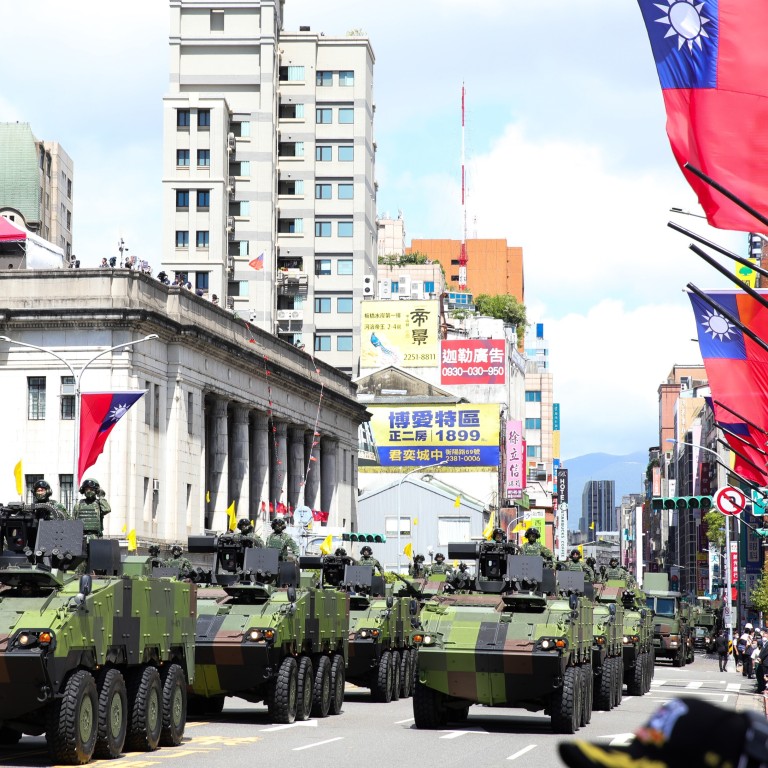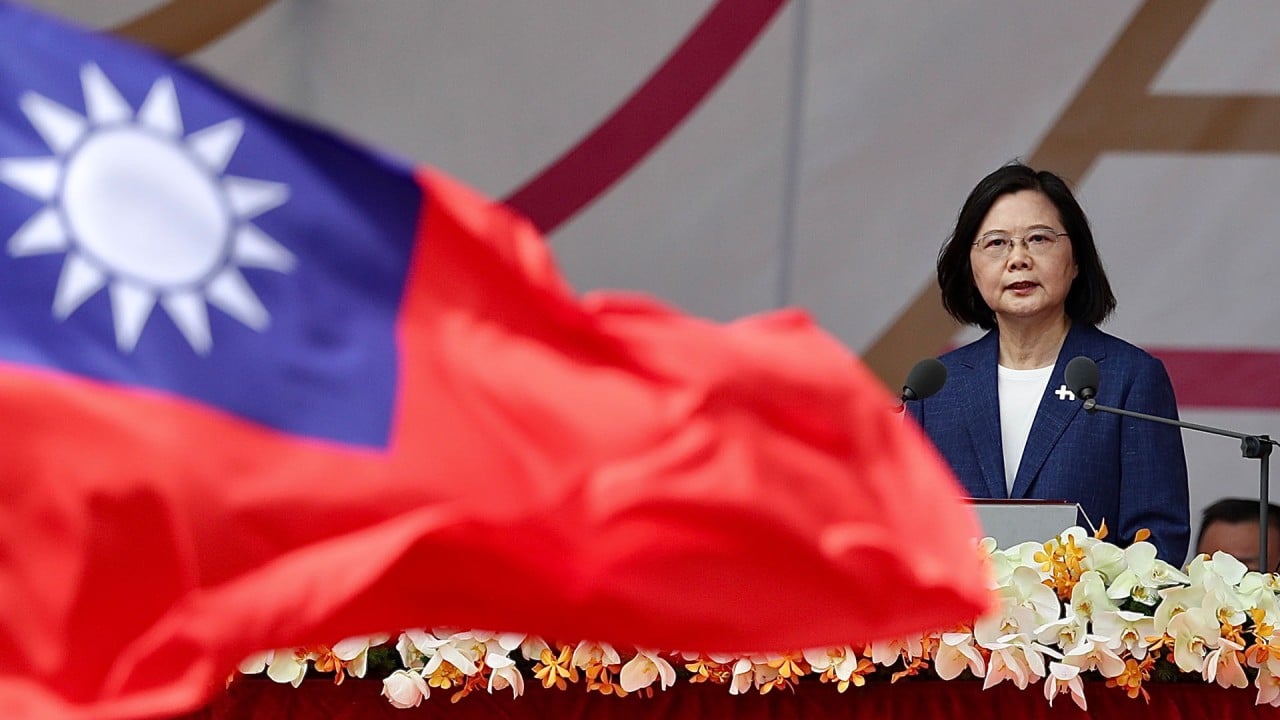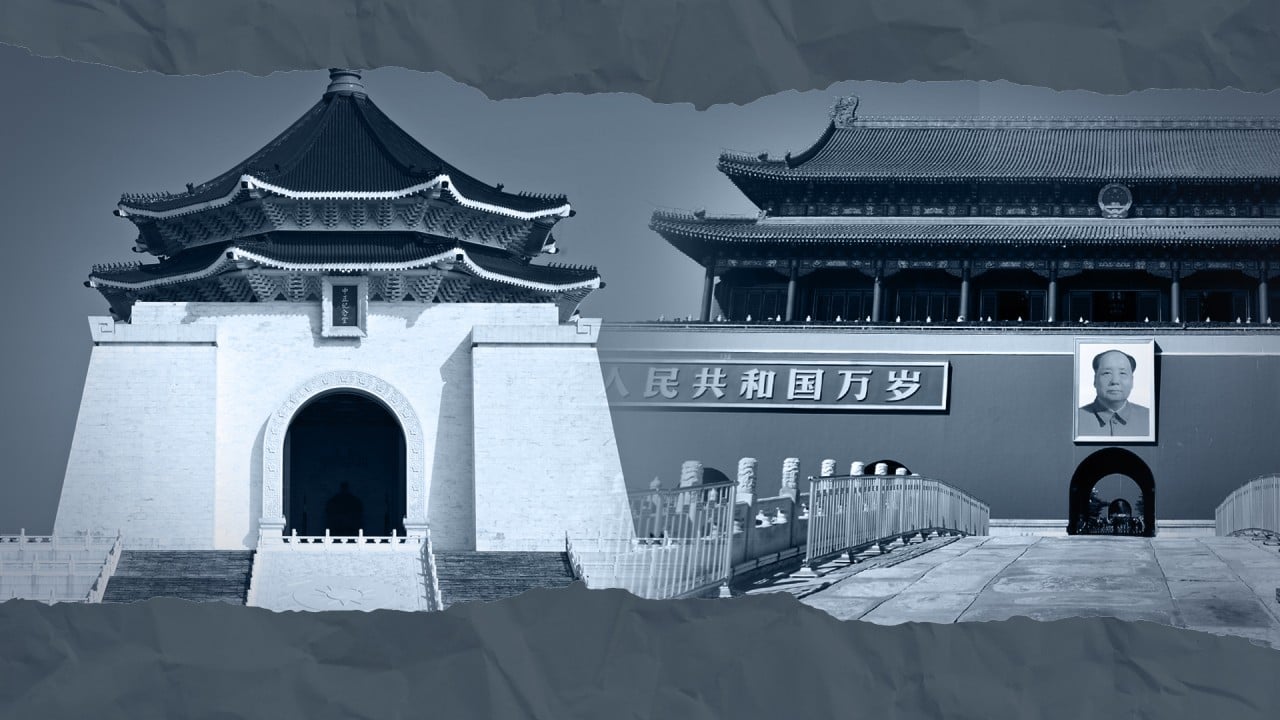
In Taiwan, Tsai Ing-wen’s cross-strait take plays well
- Her National Day remarks could boost the chances of her pro-independence Democratic Progressive Party retaining power after she steps down in 2024, analysts say
- Beijing accuses her of reviving DPP’s ‘two-state theory’, which it called an ‘evil intention of splitting the country’
Taiwanese President Tsai Ing-wen’s recent description of the island and the Chinese mainland as two unrelated entities – highly provocative to Beijing – could be a big booster for her pro-independence Democratic Progressive Party to retain power after she steps down in 2024, analysts said.
In a speech last Sunday on National Day, marking the 110th anniversary of the foundation of the Republic of China – which Taiwan’s government uses as an official title – Tsai said that the self-ruled island and the mainland should not be “subordinate to each other”.
She also said that Taiwan must “resist annexation or encroachment upon our sovereignty” and stressed that “the future of the ROC must be decided in accordance with the will of the Taiwanese people”.
Beijing immediately assailed her remarks as a blatant revival of the “two-state theory” – introduced in 1999 by Taiwan’s then-president Lee Teng-hui to classify cross-strait affairs as “special state-to-state” relations.
Beijing accuses Taiwan leader of demanding ‘state-to-state’ equality
Tsai was reportedly the principal drafter in 1999 of the controversial theory, which calls for Taipei and Beijing to be treated equally. Beijing, which sees Taiwan as a rogue province that must eventually reunite with the mainland, by force if necessary, considers it a deliberate provocation.
“No matter how the DPP tries to gloss over its rhetoric for ‘Taiwan independence’, it cannot cover up its evil intention of splitting the country,” said Ma Xiaoguang, a spokesman of the mainland’s Taiwan Affairs Office in Beijing on Wednesday.
Ma warned that Tsai’s remarks would further escalate cross-strait tensions and threaten peace and stability in the region.
Observers said that while all eyes are on Beijing and its possible retaliation against Taipei, the majority of island residents found her remarks convincing and acceptable.

02:23
Taiwanese President Tsai Ing-wen says island 'will not bow' to mainland China
“For the majority of Taiwanese people, they do not think Taiwan and China are subordinate to each other and what President Tsai said was merely stating the fact and the current status quo,” said Stephen Tan, president of Cross-Strait Policy Association, a Taipei think tank.
He said that since Tsai was elected president in 2016 and refused to accept the one-China principle, many Taiwanese had resented Beijing’s military intimidation of Taiwan, prompting them to drift further away from the mainland.
Tan said though the main opposition party, the mainland-friendly Kuomintang – also known as the Nationalist Party – had argued that constitutionally Taiwan was a part of China, the fact that the two had been politically apart since 1949 had made it hard to convince the voting public that Taiwan should return to the mainland fold.
Xi says peaceful Taiwan reunification is in country’s best interests
KMT chairman Eric Chu Li-luan and former Taiwanese president Ma Ying-jeou, a KMT member, have both accused Tsai of violating the ROC constitution by touting the two-state theory.
The Nationalists, who founded the ROC on the mainland in 1911, fled to Taiwan after they were defeated by the Chinese Communists in 1949 and set up a government in exile on the island.
“The theory was also a part of the ‘Resolution on Taiwan’s Future’ endorsed by the DPP in 1999,” Tan said, adding that through her speech, Tsai wanted to revive the position that the “ROC which exists in Taiwan is already sovereign and independent”.
That resolution refers to a declaration by the DPP national convention in 1999 that the party recognised Taiwan as a sovereign nation and that any change to the “status quo” would have to be decided by Taiwanese voters by referendum.

The resolution also affirmed the DPP position that Taiwan was “not part of the People’s Republic of China” and that it was opposed to the concepts of “one China” or “one country, two systems”.
Those principles, according to the resolution, had been “unilaterally proposed by China”; instead, Taiwan would seek to establish friendly relations with Beijing as “two separate states”.
Over the years, Tan said, instead of welcoming a cross-strait reunion, mainstream opinion on Taiwan had moved towards maintaining the status quo – in which Taiwan was neither united with the mainland nor formally independent from China – if not staying apart from each other.
“Under such a mentality, Tsai’s declaration has not only become a manifesto highlighting the DPP political ideology but it would also help increase the public support for the DPP and boost its chances in the presidential election in 2024,” Tan said.
He said that if the KMT – which had been in power from 1949 to 2000 and again, under Ma, from 2008 to 2016 – continued to promote its mainland-leaning stand, the party would have a hard time winning the 2024 election after Tsai completed her two-term presidential tenure and stepped down.
Fan Shih-ping, a political-science professor at National Normal University in Taipei, said Tsai’s comments should not be regarded as merely a rebuff of Chinese President Xi Jinping’s call for peaceful cross-strait unification.

10:22
Why has the relationship between the Chinese mainland and Taiwan taken a turn for the worse?
“Rather, it was a very important speech … in elaborating the concept that the ROC on Taiwan is not equal to the ROC on the mainland and that the ROC on Taiwan has never been ruled by the Chinese communists,” he said.
Fan added that if Beijing refused to accept this concept, it would only push the island to the “road of independence”.
Chao Chun-shan, professor emeritus of China studies at Tamkang University in Taipei, warned that Beijing was certain to interpret Tsai’s view as the “state-to-state theory”, which would only further deteriorate cross-strait relations.
Both Tsai and Xi, “insisted on their own views without any common grounds”, Chao said. Tsai focused on resisting Beijing and safeguarding the island, he said, while Xi stressed opposing Taiwan independence and promoting cross-strait unification.
In a meeting in Beijing on October 9, Xi stressed that “the reunification of the motherland by peaceful means is most in line with the overall interests of the Chinese nation, including our compatriots in Taiwan”.
He also denounced Taiwan independence as “the biggest obstacle to achieving the reunification of the motherland, and the most serious hidden danger to [China’s] national rejuvenation.”

